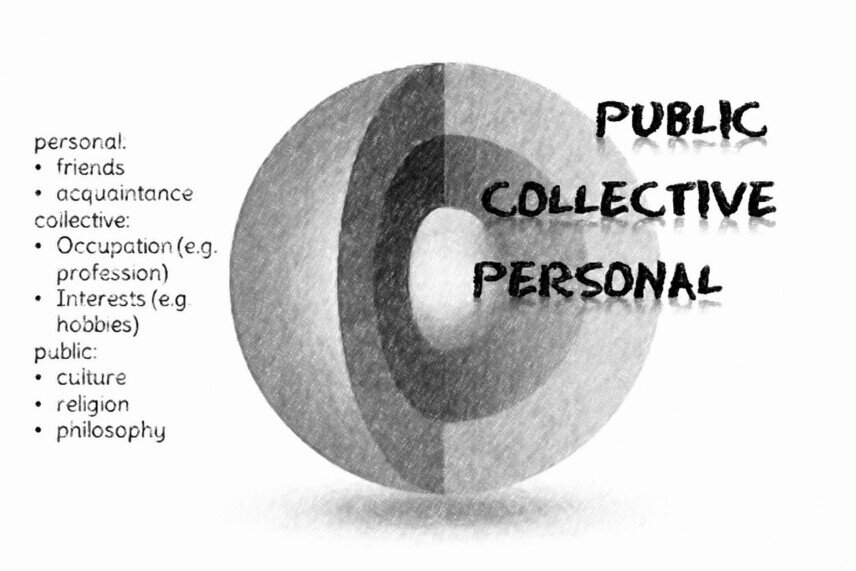Affiliation
Affiliation structures the social thought and emotion patterns that people develop during their socialization due to their origin and social environment. It is the highest layer of the logical levels. There are standards, values, and judgments as well as attitudes deeply anchored, which affect people. Cultural differences are, for example, decision making, discussion style, the idea of groups, and time perception.
The work with these aspects is useful to be able to react appropriately to desired or undesired patterns. It isn't easy to cope with it since these contents can be rarely discussed openly. At the same time, these aspects strongly affect a role, e.g., it will be difficult to enforce an open discussion culture, if existing standards prohibit criticism in public. Every person behaves at the same time in different social systems that have different values that influence everybody

Affiliation
consists of three layers: personal, collective, and public.
- Personal
The core is the personal layer. It develops patterns in the behavior and the relationships starting from the youngest age. The behavior can be seen in learning, co-operation, and leadership style. It is profoundly anchored and challenging to access. This layer is formed by the direct environment, i.e., family and friends. - Collective
In the course of life, people find themselves actively in different social groups - school, university, club, enterprise, project, and much more. The groups have their worldview that, in extreme cases, may contradict each other. Everybody must handle these tensions and sort them out by themselves. During the description of roles, it helps to consider the collective tensions of the participants. - Public
The most general sphere is the public. The media and politics essentially shape it. The public affects people indirectly since they are a part of an abstract mass, the so-called target group. This layer is reached the easiest way through respective publications to obtain certain effects.
With
this model, you check the lower logical levels concerning possible
contradictions. If actions, capabilities, or convictions violate the
participants' existing thought and emotion patterns, this leads to unwanted
resistance. Under normal conditions, the activities should not compete with
these patterns. Thus, you should align the critical aspects of the conditions
without giving up your targets.

